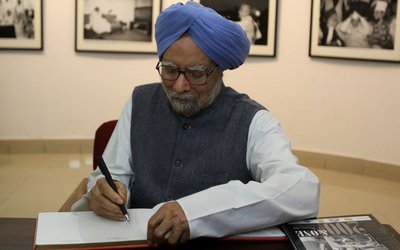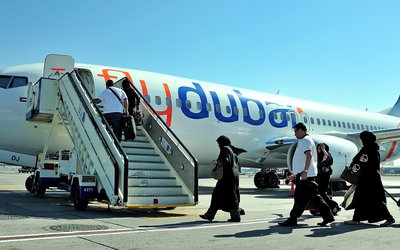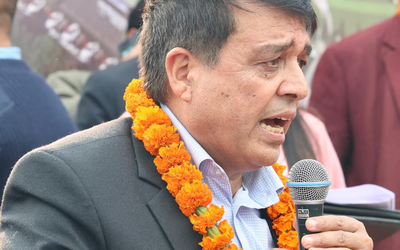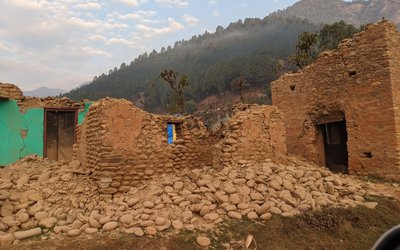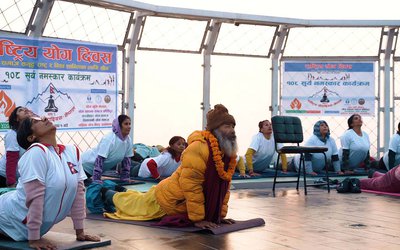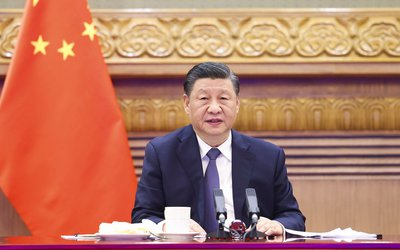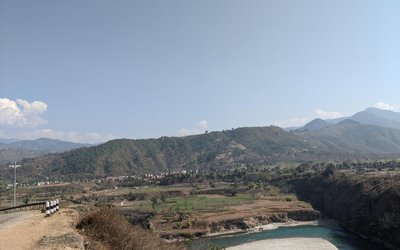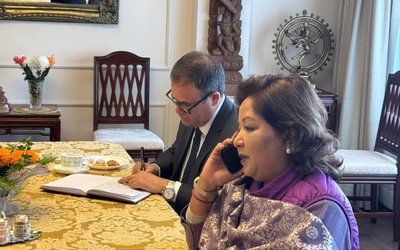The other day I was going through a research report that had underpinned the lens of child researchers from Bosnia and Herzegovina, Brazil, Indonesia, Nicaragua, Romania and Sierra Leone. It enlightened me in many ways, bringing my attention to the belief that children too can undertake social researches.
In child-led research, children have substantial control throughout the research design process – from research planning to fieldwork and analysis until dissemination of research findings - where adult only facilitate and support the researcher. In countries with less awareness about research and development (R&D), where evidence based policy and programmers designing are rarely opted, child-led research/study could be an effective approach to addressing child-wellbeing issues.
This new turn in childhood and social research has shifted the paradigm challenging the notion children and young people are merely objects of research. The central argument is that children have now become researchers of their own subjects/issues. Considering this, international child focused organizations like World Vision International and Save the Children including academic institutions, have been carrying out studies to capture feelings and experiences of children to understand what better shapes their future.
This turn is not out of the contentious in social research. Along with others, Sociologist Martyn Hammersley does not accepted child-led research as social research. Nevertheless, there is growing arguments that those who believe research for knowledge generation, thinks that we have to believe that child-led research is scientific as children are producers of knowledge. The study undertaken by World Vision indicates that for exploring the children issues and setting the agenda, this turn has immensely benefitted.
As the UN Convention on the Rights of the Child has emphasized the right of children and young people to be heard and to participate in the society. These rights can only be translated into action when the child leads the inquiry process. The genuine voices of children will not be captured unless they control the design of research. Arguably, child researchers bring their own expertise. A scientific study has proven they are able to identify issues, improve fieldwork design and access and analyze data.
The COVID-19 pandemic could push117 million more children into monetary poor households by the end of the year, globally. A study conducted by Save the Children in Nepal highlights 37% respondents felt violence against children has increased during the lockdown. Likewise, a study by World Vision International Nepal illuminates that more than 80% of children were upset when schools were closed, around 20% experienced mental stress/anxiety and approximately 16% experienced sexual abuse or exploitations during this crisis.
Various studies including rapid assessments, situation analysis, policy briefs on children and their wellbeing were published in course of the COVID-19 crisis in Nepal; however, none of the studies adopted child-led approach for generating knowledge related to children. A study states, more than 30% of the respondent children were not consulted and/or involved in COVID-19 responses and they felt their quality of life has deteriorated since the lockdown. While the pandemic has further exacerbated vulnerabilities of children, the importance of child-led study has increased particularly in this context. Children (until 18 years of age) share approximately 40% of Nepal’s total population, therefore it is imperative that voices of children be captured and understood through appropriate research methodology.
The token amount (0.3% of GDP) spent in R&D by the government has obscured the debate on child-led research. Nevertheless, with the onset of COVID-19 crisis and the devolution of power in the country, the government especially the National Planning Commission (who has been working to formulate a new monitoring policy)and civil society, research institutions and academia can regard this turn as the foundation to ensure children participation as “citizen control”. Finally, a recent report by the UNICEF on child-wellbeing has also called-for the government and international community to consider the children public policy consultation by empowering their skills in the advent of the dark and difficult times of COVID-19.
The writer is a development professional and is currently doing PhD in Tribhuwan University. He can reach at: planpt@gmail.com.

